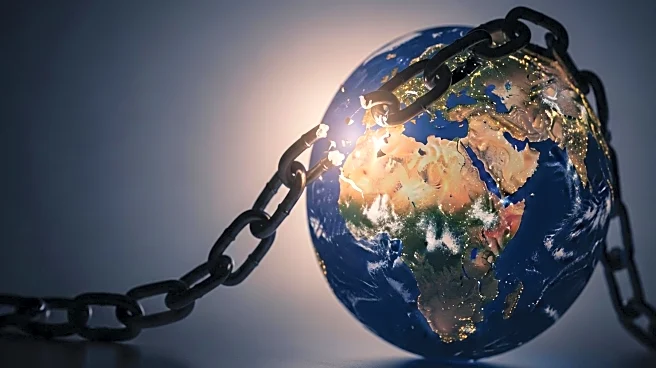What is the story about?
What's Happening?
Afghanistan experienced a two-day internet blackout, reportedly ordered by the Taliban, disconnecting millions from the outside world. The shutdown affected banking services, businesses, flights, and communication, causing widespread panic and disruption. The blackout was attributed to a directive from the Taliban's Supreme Leader, Mawlawi Haibatullah Akhundzada, with no public explanation provided. The internet has been crucial for Afghan women and girls, especially for education, which is banned beyond sixth grade under Taliban rule. The blackout demonstrated the regime's power to isolate the population, particularly women, from essential services and communication.
Why It's Important?
The internet blackout in Afghanistan underscores the fragility of connectivity in regions under repressive regimes. It highlights the critical role of the internet in modern society, not only for communication but also for economic activities and education. The shutdown has significant implications for human rights, as it restricts access to information and education, particularly for women and girls. It also poses challenges for businesses and aid organizations operating in the region, potentially exacerbating the country's economic and humanitarian crises.
What's Next?
The international community, including the United Nations and human rights organizations, may increase pressure on the Taliban to ensure stable internet access. There could be efforts to provide alternative connectivity solutions, such as satellite internet, to mitigate future disruptions. The Taliban's actions may lead to further isolation from global networks, impacting Afghanistan's economic recovery and international relations.
Beyond the Headlines
The blackout raises ethical questions about the use of internet control as a tool for political repression. It also highlights the resilience of Afghan citizens who seek alternative means to stay connected, emphasizing the importance of digital rights and access to information as fundamental human rights.















